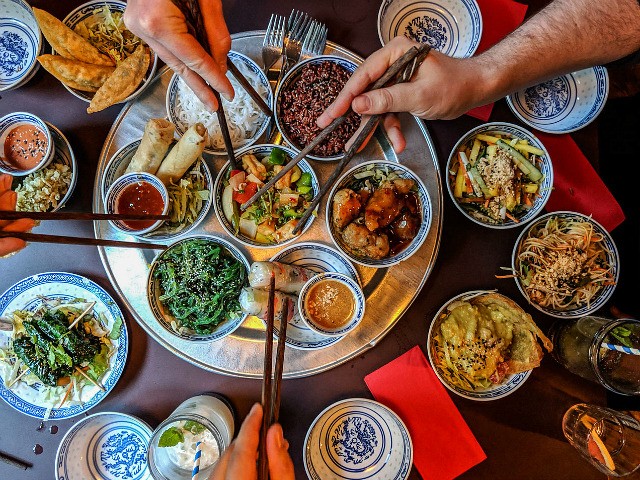Activists with Ajinomoto’s “Redefine CRS” campaign claim fears related to monosodium glutamate (MSG) are rooted not in health, but racism.
“Chinese Restaurant Syndrome isn’t just scientifically false — it’s xenophobic,” the site, sponsored by Japanese food and seasoning company Ajinomoto reads. “This is long overdue,” an official company account of the MSG distributor tweeted. “@mreddiehuang @jeanniemai and @askdrbilly want to make things right. RT to tell @merriamwebster to #RedefineCRS.”
The “Redefine CRS” campaign calls Chinese Restaurant Syndrome “an outdated term that falsely blamed Chinese food containing MSG, or monosodium glutamate, for a group of symptoms.” Merriam-Webster has already responded, saying they are now “reviewing the term and revising accordingly.”
“We’re constantly in the process of updating as usage and attitudes evolve, so we’re grateful when readers can point us toward a definition that needs attention,” they said. Even so, a company that produces the product they are defending as their central interest is a poor source of consumer confidence.
But despite the dubious nature of the source, they may be right. Original findings on the health risks of the popular amino acid were the result of some very insubstantial research in the late 1960s. Furthermore, people often do not realize that not only is the compound naturally occurring, it is found in much of what we consume on a daily basis. Regardless of the hype, the Food and Drug Administration (FDA) still officially believes MSG is safe.
MSG does not cause higher instances of illness in the countries that produce and cook with it the most, and MSG in vegetables — and the vast majority of American manufactured snack foods — does not seem to trigger the complaints people attribute to “Chinese Restaurant Syndrome.”
It does seem that indigestion is being labeled as something specific to a nationality when the more mundane reality is that most people have upset stomachs after eating food to which they are unaccustomed. Whether you call it racism or just another example of our carousel of pop culture diet paranoia, the actual medical dangers seem to have been rather drastically exaggerated. If any major health hazards do exist, they remain unproven.
Both national and international researchers — as far back as 1986 — have failed to confirm any of the dangers now commonly accepted as fact by the population at large. Late cuisine megastar Anthony Bourdain made his own feelings clear on monosodium glutamate. “I think [MSG] is good stuff,” he said in an episode of Parts Unknown. “I don’t react to it — nobody does. It’s a lie.”
“You know what causes Chinese restaurant syndrome?” he asked. “Racism.”
Celebrity chef David Chang of Netflix hit Ugly Delicious shares a similar view, citing the lack of scientific evidence and questioning whether CRS is a “psychosomatic myth.” He has an idea for the skeptics: “If anyone gives you shit about MSG just give them a bag of Doritos,” he said. “Works every time!”

COMMENTS
Please let us know if you're having issues with commenting.